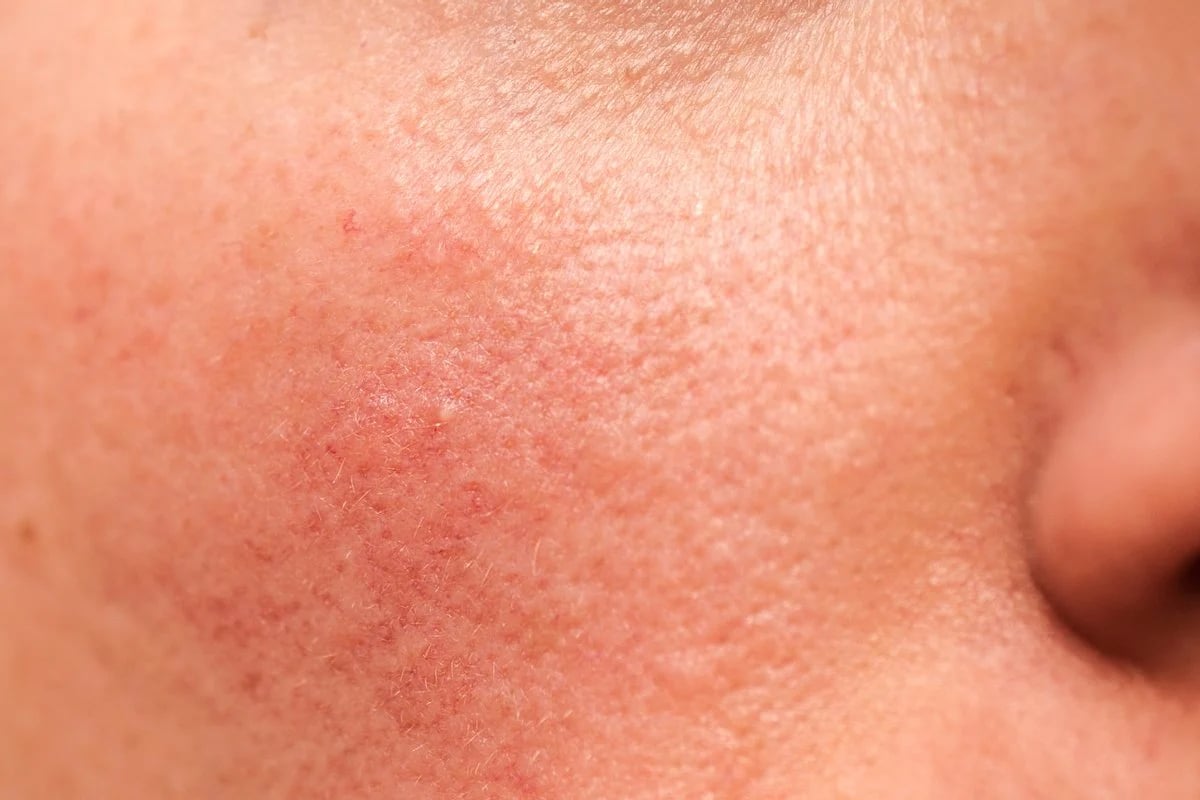
If you're a gal dealing with rosacea (hello, please take a seat), you'll know just how long the 'no' list is when it comes to the potential triggers. From alcohol to spicy foods and exercise, it can sometimes seem like an impossible skin condition to manage.
The hardest part about it? While it is a condition that can be controlled, there's currently no cure for rosacea. Meaning, more often than not, you can end up forking out a lot of money and trying hundreds of different products and remedies, only to see zero improvements.
Sigh.
Watch: Here are seven ways to improve your skin while sleeping. Post continues below.
Just in case you're new here and have no idea what rosacea actually is (omg how rude of us!), rosacea is an inflammatory skin condition that appears as red patches, red bumps, and tiny blood vessels.
Sound familiar? Similarly to other skin conditions out there, it affects all skin differently.
But here's the thing: For such a common condition, there's actually a whole lot of confusion around rosacea.
In fact, some of the things you might treat as gospel may actually not even be... correct. No, seriously!